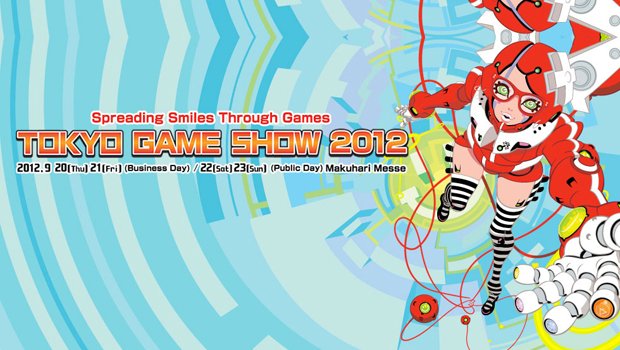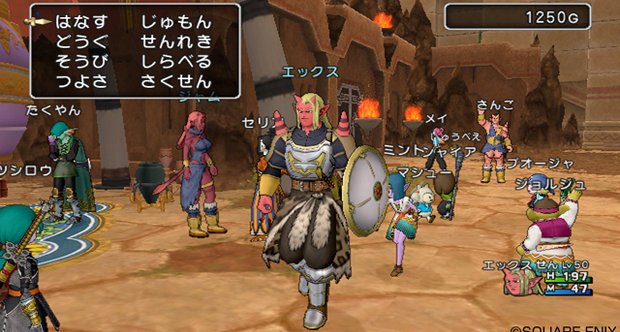Is there a way to fix Japanese games?
With TGS on the horizon, we ponder the situation of Japanese development
Tokyo Game Show begins this week, shifting the global gaming attention to Japan. Unfortunately for fans of Japanese games, events like TGS also throw into sharp relief the problems that are plaguing Japanese development. The country that once led innovation in virtually every genre has had serious trouble connecting with gamers outside Japan, and clearly the divide between the markets is growing.

From the 1980s to the early 2000s, games from Japan dominated the market in the West. While companies like Konami, Capcom, and Squaresoft were making their name with lasting franchises like Metal Gear, Street Fighter, and Final Fantasy, Western developers were busying themselves during these years with...*crickets*.
Today the charts are ruled by titles from the West: Call of Duty, Assassin’s Creed, Halo, and Elder Scrolls. Comparatively, during the last decade, many Japanese-developed franchises have floundered with the rest of the world. Already in 2012, games like Ninja Gaiden 3, Armored Core V, and Steel Battalion have been met with lackluster reviews and low sales.
Some companies, like Square Enix and Capcom, have been able to maintain strong international sales, but in most cases that’s due to an increased Western influence. Square Enix purchased Eidos, acquiring in the process top Western franchises like Tomb Raider and Hitman. Meanwhile, Capcom is consistently relying on non-Japanese developers to make new games in established series like Devil May Cry (Ninja Theory), Lost Planet (Spark Unlimited), and Dead Rising (Blue Castle).
That’s not to say Japanese developers don’t know how to sell to Japanese gamers. Franchises like Monster Hunter, Dragon Quest, Yakuza, Dynasty Warriors, and the Tales of… games are consistently found at the top of the Japanese sales charts, but those successes are increasingly becoming another sign of the problem. While those series sell in the millions in Japan, they barely make an impact overseas--if they’re even localized at all, something publishers are becoming increasingly wary of doing. Most of those series’ gameplay rules are so well established that the devs aren’t in any rush to make them more user-friendly to westerners. And it’s that disconnect that’s only making things worse.

While all those franchises certainly have fans outside of Japan, when publishers take a chance and bring them to the West, they rarely accrue the global sales they seemingly should thanks to the divide in player tastes. And that situation is leaving Japanese developers with some very tough choices. Do they make changes to the fundamental designs of their big Japanese franchises and risk alienating their core audience, or do they continue to cater to this increasingly niche segment of gamers? Bomberman: Act Zero highlights perfectly the inherent risk in this equation.
Still, there are some Japanese developers breaking the mold entirely. Grasshopper Manufacture, for one, develops unique, distinctively Japanese-weird games, such as No More Heroes or Shadows of the Damned, that have won over critics in the West and the East. Likewise, the collective of former Capcom creators known as Platinum Games makes the kind of risky, innovative, and, above all else, fun action games people once expected from Japan.
Weekly digests, tales from the communities you love, and more
Sadly, Platinum and Grasshopper's innovative strides haven't translated into big sales in either America or Japan. Even the best sellers of those companies, like Bayonetta and Lollipop Chainsaw, end up with a fraction of the sales of games like The Elder Scrolls V: Skyrim and Mass Effect 3.
Though the sales figures have not yet born it out, the types of new, innovative, and distinctive games that Platinum and Grasshopper create are the key to Japan’s future. And the good news is that these companies are still being given the chance to find their place in the world. Earlier this week, Nintendo confirmed that it would be bringing Platinum’s Bayonetta 2 exclusively to the Wii U. Here’s hoping that kind of big-time support will give the franchise the boost it needs to make its lasting mark on the industry.
Henry Gilbert is a former GamesRadar+ Editor, having spent seven years at the site helping to navigate our readers through the PS3 and Xbox 360 generation. Henry is now following another passion of his besides video games, working as the producer and podcast cohost of the popular Talking Simpsons and What a Cartoon podcasts.



